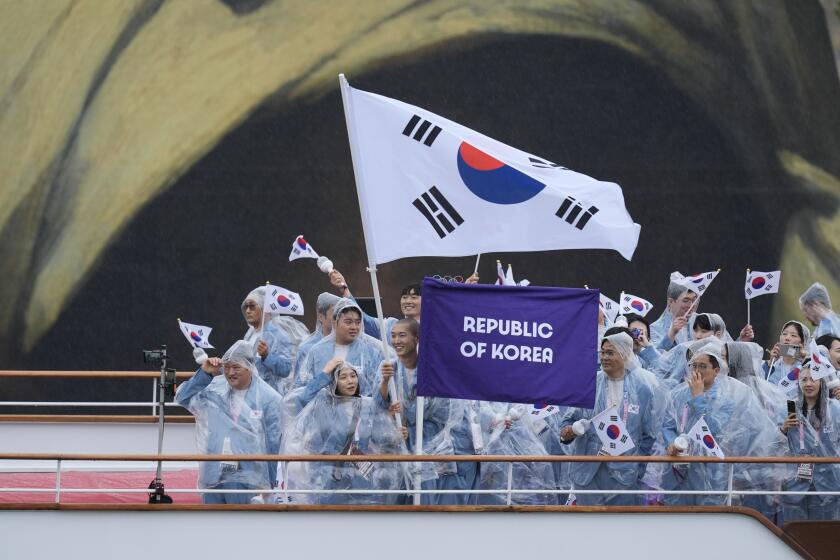JAPAN WATCH : Seoul Move
Seeking to end years of strained relations dating back to the turn of the century, Tokyo has at last agreed to improve the legal and civil rights of Korean residents of Japan. The move to begin to rectify the institutionalized discrimination against Koreans is long overdue, though it offers only marginal improvements.
Prime Minister Toshiki Kaifu ended a Seoul meeting with South Korean President Roh Tae Woo by disclosing that Tokyo will abolish its controversial fingerprinting of Koreans by 1992. Koreans have long campaigned to remove the fingerprinting requirement, which also applies to other foreign nationals in Japan. Instead of identification cards with fingerprints, they will be issued photo cards.
Tokyo has always denied rights to the 680,000 Koreans living in Japan. Most are descendants of Koreans brought to Japan as forced laborers during Japan’s brutal occupation of Korea, which lasted from 1910 to 1945. Japan has paid reparations to South Korea and expressed regret for its colonial exploitation.
Still, Tokyo refuses to extend citizenship automatically to Korean residents. They must submit to an extensive official investigation and take Japanese names to become citizens. Those who do not are barred from public service jobs and face deportation for unlawful acts. In a minor concession, Tokyo has agreed that third-generation Koreans (of whom there are reportedly fewer than six!) and their offspring will receive automatic rights to permanent residence. Tokyo must do much more to gain respect from its Korean neighbor.
More to Read
Sign up for Essential California
The most important California stories and recommendations in your inbox every morning.
You may occasionally receive promotional content from the Los Angeles Times.






